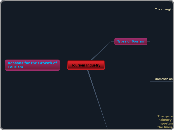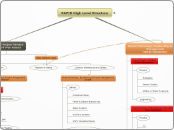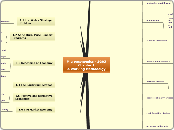Defending North America
Canada's Acceptance of Nuclear Weapons in 1963
Prime Minister Pearson made the wrong decision when he concluded an agreement with the United States to obtain nuclear warheads and presented it to the House of Commons in 1963 because:
Canada had objected to the spread of nuclear weapons in its foreign policy. The Minister of Foreign Affairs, Howard Green, pointed out that the use of nuclear weapons in the nation’s defense plan was at odds with the Canada’s foreign policy. The Prime Minister should have accepted the advice of his minister and altered the defense plan.
Prime Minister Diefenbaker had received letters and petitions from concerned Canadians who made it clear that the people of Canada did not want nuclear weapons. Newly appointed Prime Minister Pearson should have and respected the views of the citizens who had elected him.
The Canadian government had a reputation for making tough decisions and for abandoning projects that proved to be ill suited to Canada’s needs. The acceptance of nuclear weapons should have been denied in the same way that the Avro Arrowhead Project was abandoned.
Canada should have acted as an independent nation. Accepting nuclear weapons showed the world that Canada was only semi-autonomous. Cabinet was clearly divided on the subject of nuclear weapons but succumbed to pressure by US President Kennedy and his administration. The decision to accept nuclear weapons was not made independently by Canada.
Prime Minister Pearson made the right decision when he concluded an agreement with the United States to obtain nuclear warheads and presented it to the House of Commons in 1963 because:
Canada needed to integrate its air defenses with the United States in order to protect the continent against the aggressive communist states of the world. Canada could not argue with the United States about the necessity of nuclear weapons because Canadians were reliant on the United States’ military for much needed protection.
Canada had made commitments to both NATO and NORAD, and, unless the country’s defense policy was changed, the nuclear weapons were necessary in order to meet these obligations.
The Canadian government had made the decision to terminate the Avro Arrow Project because it could not effectively meet Canada’s changing security needs. Canada had agreed to share Bomarc ground-to-air missiles with the United States. These missiles required nuclear warheads. Therefore, Canada had to accept nuclear weapons or the country would be forced to abandon a second defense plan and would have faced backlash both at home and abroad.
The objections of citizens to nuclear weapons on Canadian soil were unfounded. Lester Pearson had made his views clear in 1963 when he was Leader of the Opposition, and Canadians elected the new Prime Minister knowing that he supported the acquisition of nuclear weapons in order to meet defense commitments.
Canada's Role in the Cuban Missile Crisis of 1962
Prime Minister Diefenbaker’s initial refusal to put Canadian troops on alert in October of 1962 during the Cuban Missile Crisis was wrong because:
The decision was motivated by poor relations between Prime Minister Diefenbaker and US President Kennedy. Prime Minister Diefenbaker had been looking for a way to assert his independence since 1961 when he discovered the Rostow Memo, which outlined several desired results that the Americans had hoped to “push” Canada toward during a meeting.
The United States had already obtained proof of missile installation. A US U2 spy plane had photographed the construction of multiple missile deployment sites in Cuba, and Diefenbaker had no grounds to doubt the intelligence.
Canada clearly underestimated the severity of the crisis. Cuba is located a mere ninety miles off the coast of Florida, and Fidel Castro had received backing from the Soviet Union, which was undoubtedly a hostile superpower. All other NATO members agreed that the event was a world crisis, supported the blockade, and agreed to provide military assistance if needed.
It was ridiculous for Prime Minister Diefenbaker to suggest that United Nations inspectors should go to Cuba to survey the nuclear sites. Such action would have taken time and would have allowed the Soviet Union the ability to finish the installation project. Even the United Nations did not support inspections and instead sanctioned the blockade.
Prime Minister Diefenbaker’s initial refusal to put Canadian troops on alert in October of 1962 during the Cuban Missile Crisis was right because:
The event had the potential to lead to a full scale nuclear war involving the world’s two superpowers, the United States and the Soviet Union. Putting Canadian troops on alert may have escalated the event into a full scale crisis. Diefenbaker was wise to ask for absolute proof before making the decision to fully support the United States. Prime Minister Diefenbaker had valid reasons to state that President Kennedy’s “arrogance” could have caused a third world war.
Canada had a reputation of remaining neutral in international crises and had taken on the role of peacekeeper. Canada’s status as a middle power in the Suez Crisis had enabled our country to diffuse the situation. If Canadian troops were on alert then Canada would have no hope of mediating a resolution.
Canada respected the United Nations and the notion of collective security. Prime Minister Diefenbaker demonstrated this respect by suggesting that the organization be used to inspect the Cuban sites.
Military surveillance is not always accurate. Canada would have received international condemnation had the photographs been shown to be inaccurate and had government hastily raised the military awareness level to DEFCON 3 as President Kennedy had requested. Diefenbaker was supportive of the American concerns; he just did not provide the unequivocal support that was expected by the United States.
The Scrapping of the Avro Arrow Project in 1959
AGAINST Arguments:
Prime Minister Diefenbaker made the wrong decision when he cancelled the CF-105 Avro Arrow Program because:
It cost the government money to cancel the project. The entire project cost $347,669,537 (including termination expenses). The money spent prior to cancellation was a production investment, and money could have been recovered if production had been allowed to proceed.
Cancellation of the CF-105s prior to production made it impossible to demonstrate their full potential to the world market. Had production been allowed to continue then other countries may have shown an interest and placed orders. The project could have earned export dollars had it not been cancelled.
Cancelling the project led to the virtual disintegration of the Canadian aviation industry. Wide scale layoffs resulted from the project being cancelled because parts were being sourced within Canada and Canadian design teams had been used.
Canada failed to understand the lead that it had in 1959 in terms of military aerospace technology. The cancellation of the Avro caused the country to lose its lead forever. The American government somehow convinced officials and some high ranking RCAF officers that there needed to be a shift in military strategies. Replacing the Avro Arrow Program with Bomarc missiles made no sense; the Bomarc missile had to be armed with nuclear warheads (which Diefenbaker refused) and later proved itself to be completely useless. Canadians replaced a promising aircraft with a useless missile.
FOR Arguments:
Prime Minister Diefenbaker made the right decision when he cancelled the CF-105 Avro Arrow Program because:
Costs were escalating. The government of Canada had a “cost-plus” contract, and there was no incentive for the supplier to curb costs. There was no way of knowing how much the project would cost.
Selling the Avro arrowhead to foreign markets may have made it economical, but the project did not interest other countries because it was designed specifically for Canada.
The project had been poorly managed from the start. The RCAF did not have a well thought out policy and did not even open a project office until 1957. The project was doomed.
There had been a fundamental shift in strategic policy within the Canadian military. NATO and NORAD goals were conflicting, and the navy and army did not even support the RCAF and the Avro Arrow Project.









